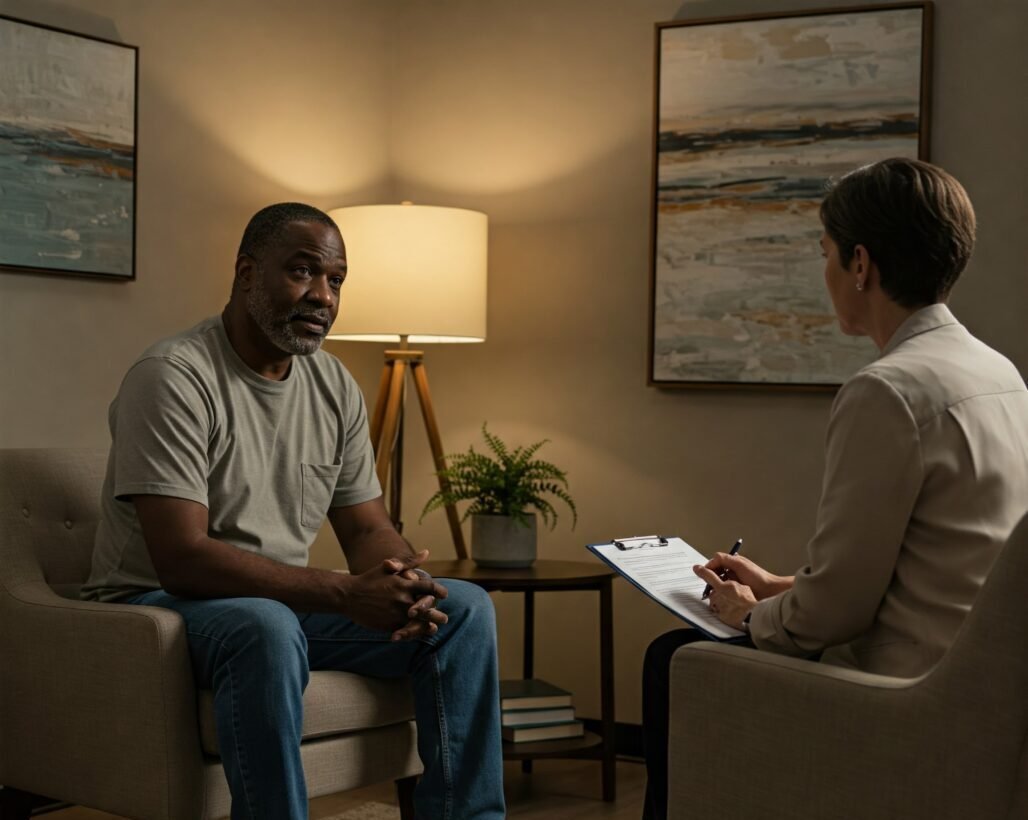Therapy After Prison Isn’t a Luxury—It’s a Lifeline
People don’t walk out of prison healed. Most walk out carrying years of trauma, grief, rage, and pain—and they carry it in silence. In the system, vulnerability gets you hurt. So you bury it deep and survive.
Then you get out, and the world expects you to just “be normal.”
The truth? Therapy after prison isn’t a luxury—it’s a lifeline. Without it, too many people fall right back into the same cycle that got them locked up in the first place.
At Mercy Center of Arizona, we understand what incarceration really does to a person. It doesn’t just take away time—it warps your sense of trust, connection, and safety. That’s why we provide trauma-informed therapy as a core part of our program.
Because addiction? That’s often just a symptom.
So is aggression. So is isolation. So is shutting down when someone asks, “How are you really doing?”
Most of the people we work with have never had a therapist look them in the eye and say, “You’re not broken. You’ve been hurt.” That moment alone can change everything.
We work with people recently released from prison who are struggling with behavioral health challenges—PTSD, anxiety, depression, bipolar disorder, unresolved grief. Many were misdiagnosed or never diagnosed. Some were given meds in jail with no follow-up. Others self-medicated for years, because that’s what was available.
When someone comes to Mercy Center, we don’t just ask about their history. We ask about their pain, their goals, their story. And we listen.
We assign licensed professionals and peer support staff who have been through it themselves. Our therapy isn’t a checkbox—it’s the heart of what we do.
Because reentry isn’t just about getting a job or finding a place to stay. It’s about healing the parts of you that prison tried to erase.
One of our clients, who spent 15 years inside, said after his third therapy session: “I’ve never said this stuff out loud before. I didn’t know I needed to.”
That’s the moment we live for.
It’s not just about preventing recidivism—it’s about giving someone a chance to actually live.
When you treat the wound instead of just the behavior, you change everything. Relationships get stronger. Substance use decreases. Hope returns.
And that’s why at Mercy Center, therapy isn’t extra. It’s essential.
If you’ve never been in the system, you might not understand the kind of emotional scar tissue people carry when they come out. But if you have—if you’ve ever tried to make sense of life on the outside while your mind is still locked up on the inside—you know exactly what we mean.
So we say it again: Therapy after prison isn’t a luxury. It’s a lifeline. And we’re here to make sure no one has to walk that road alone.



